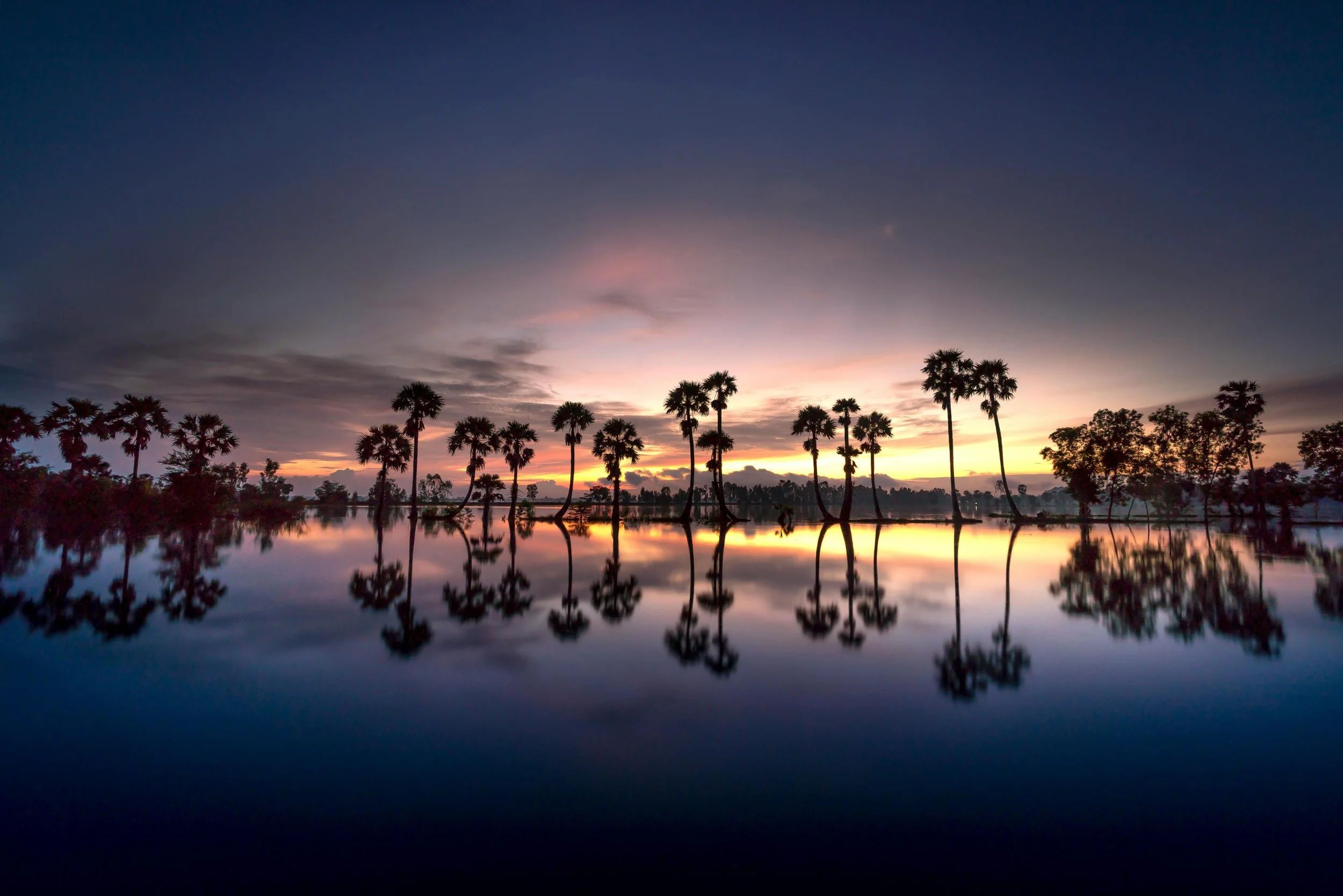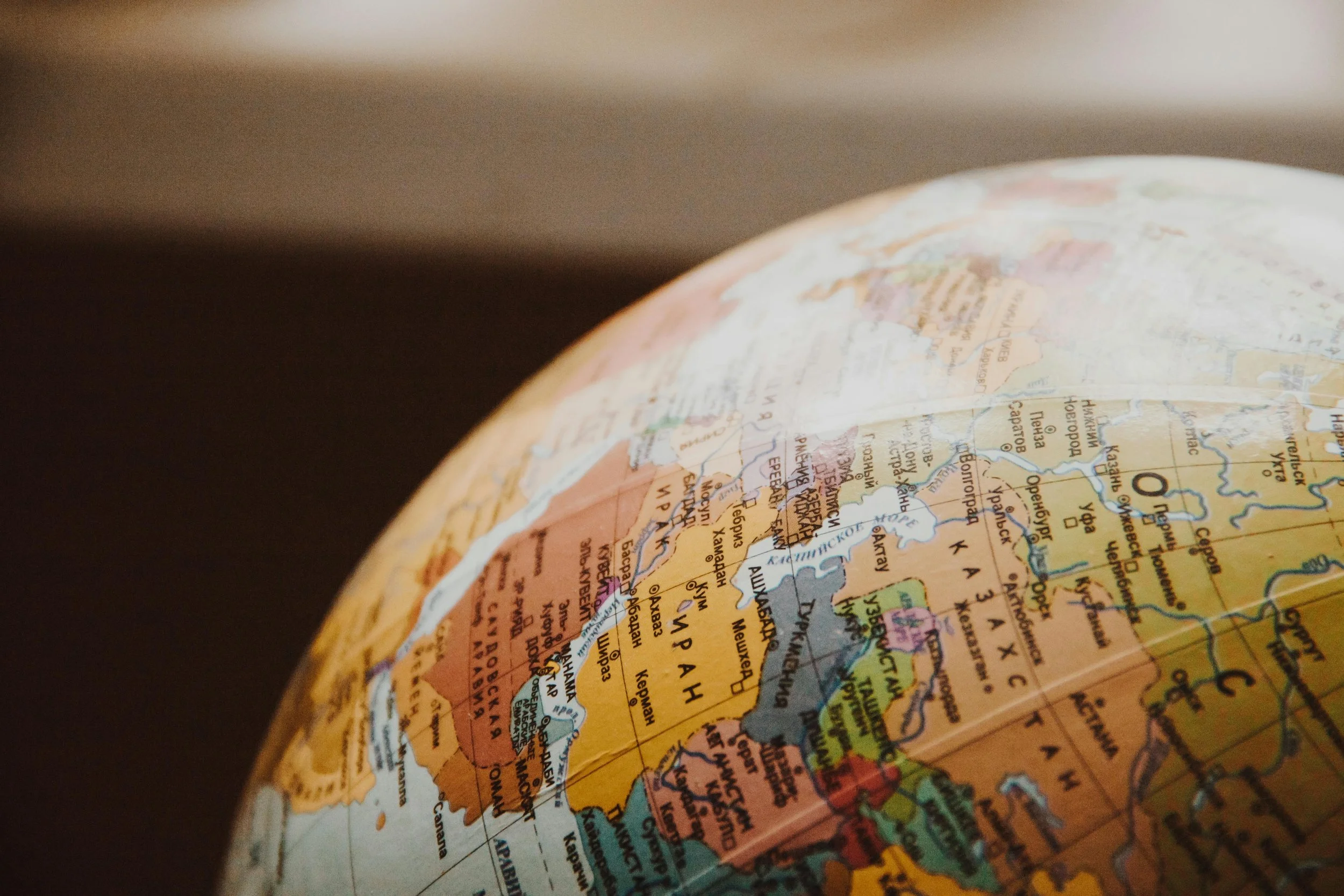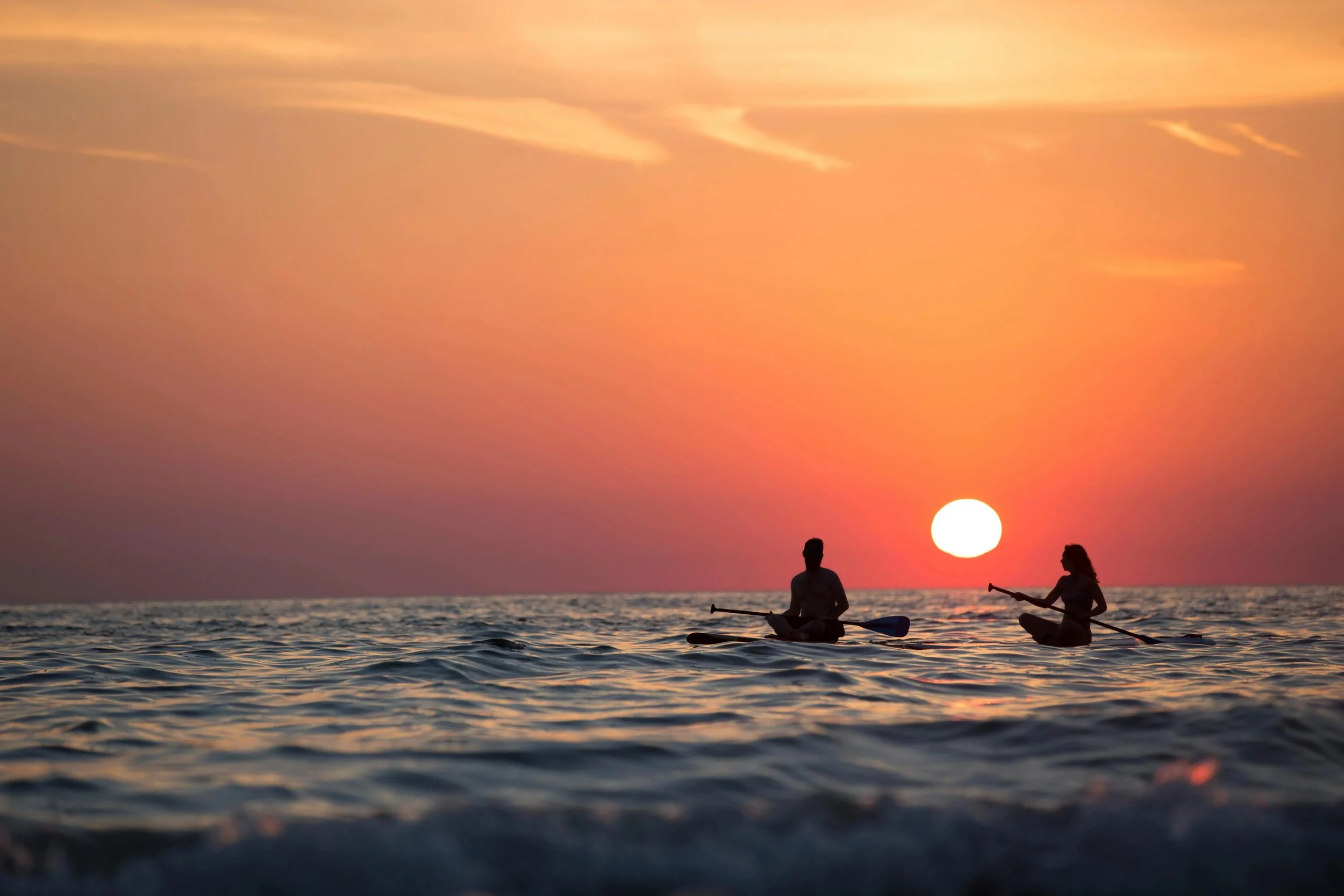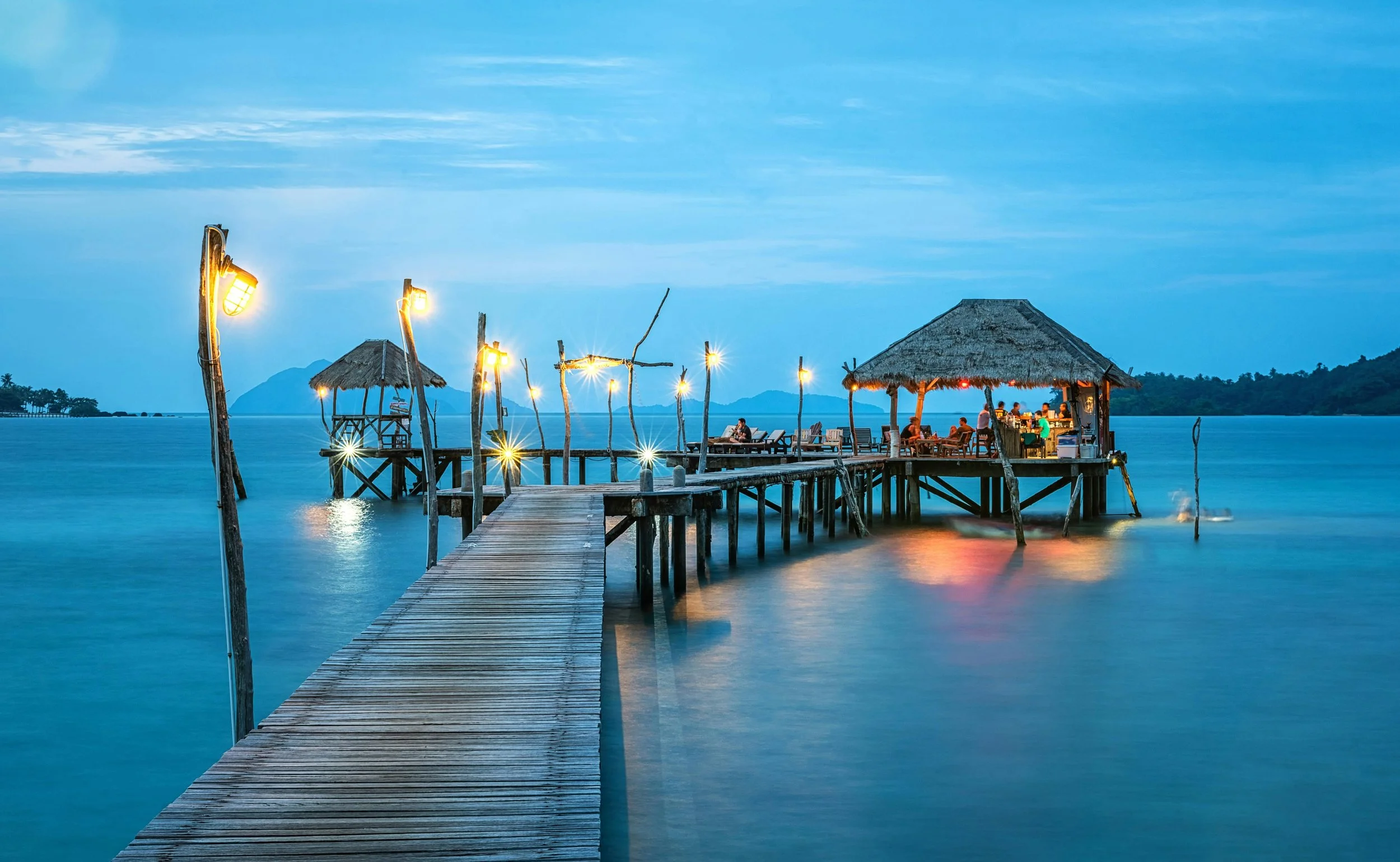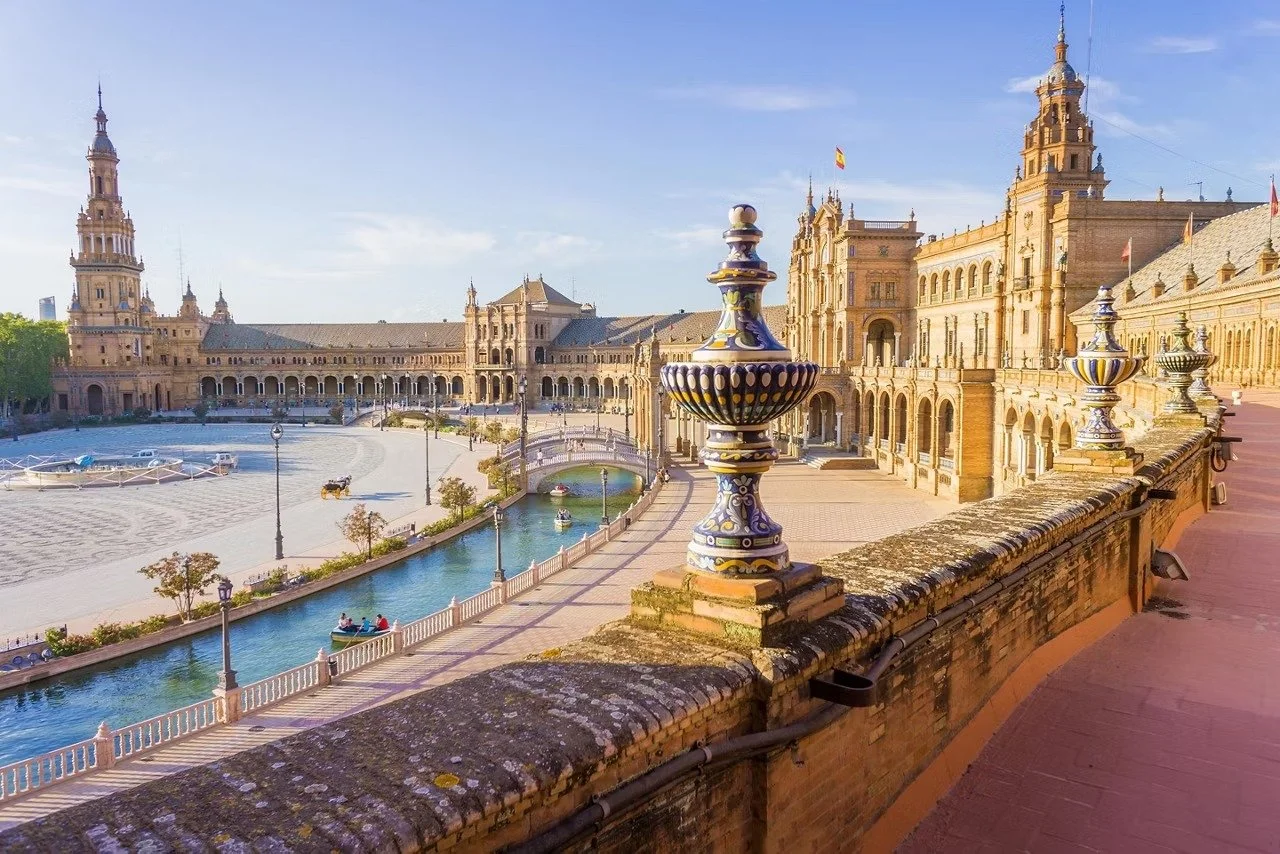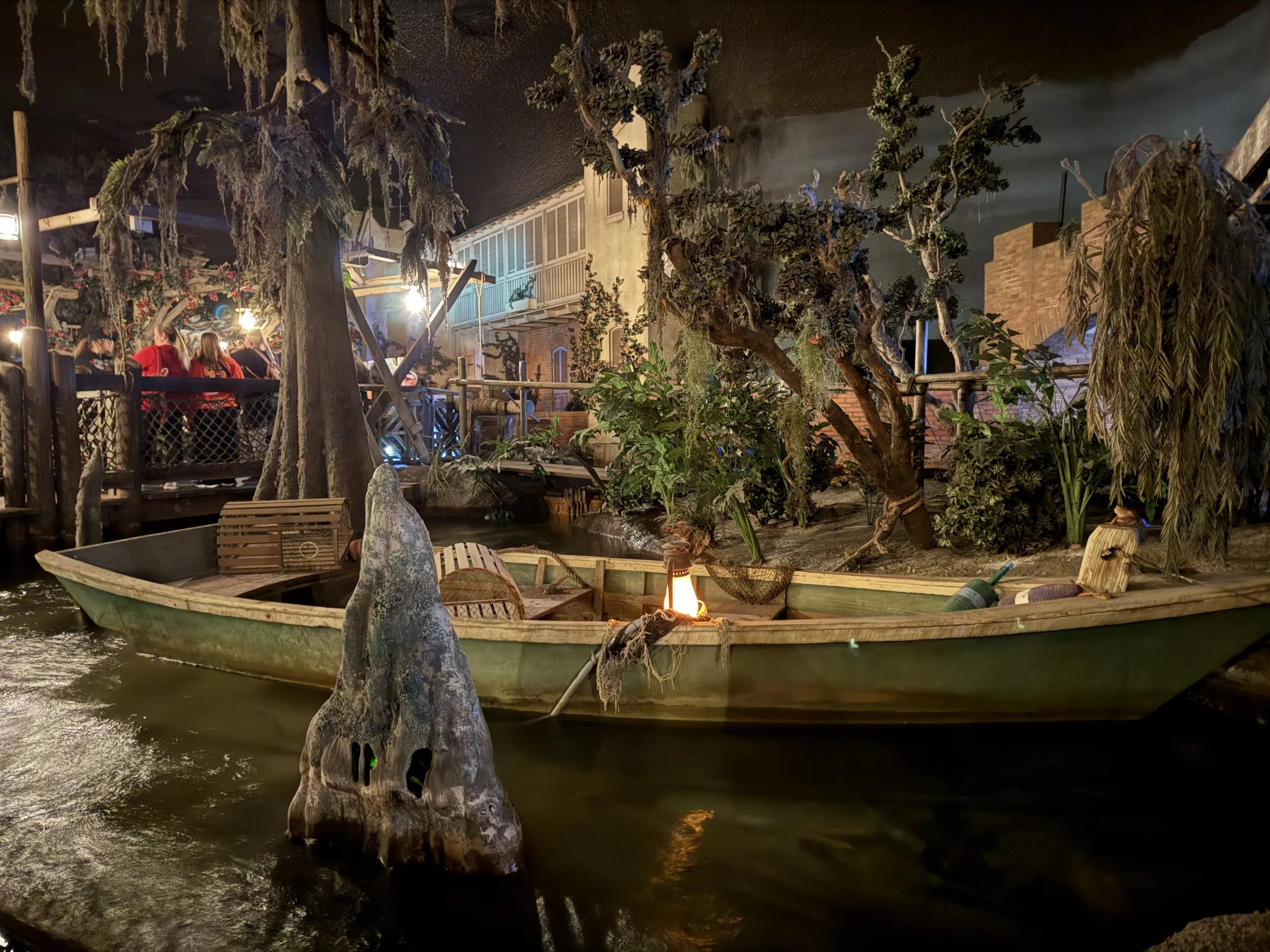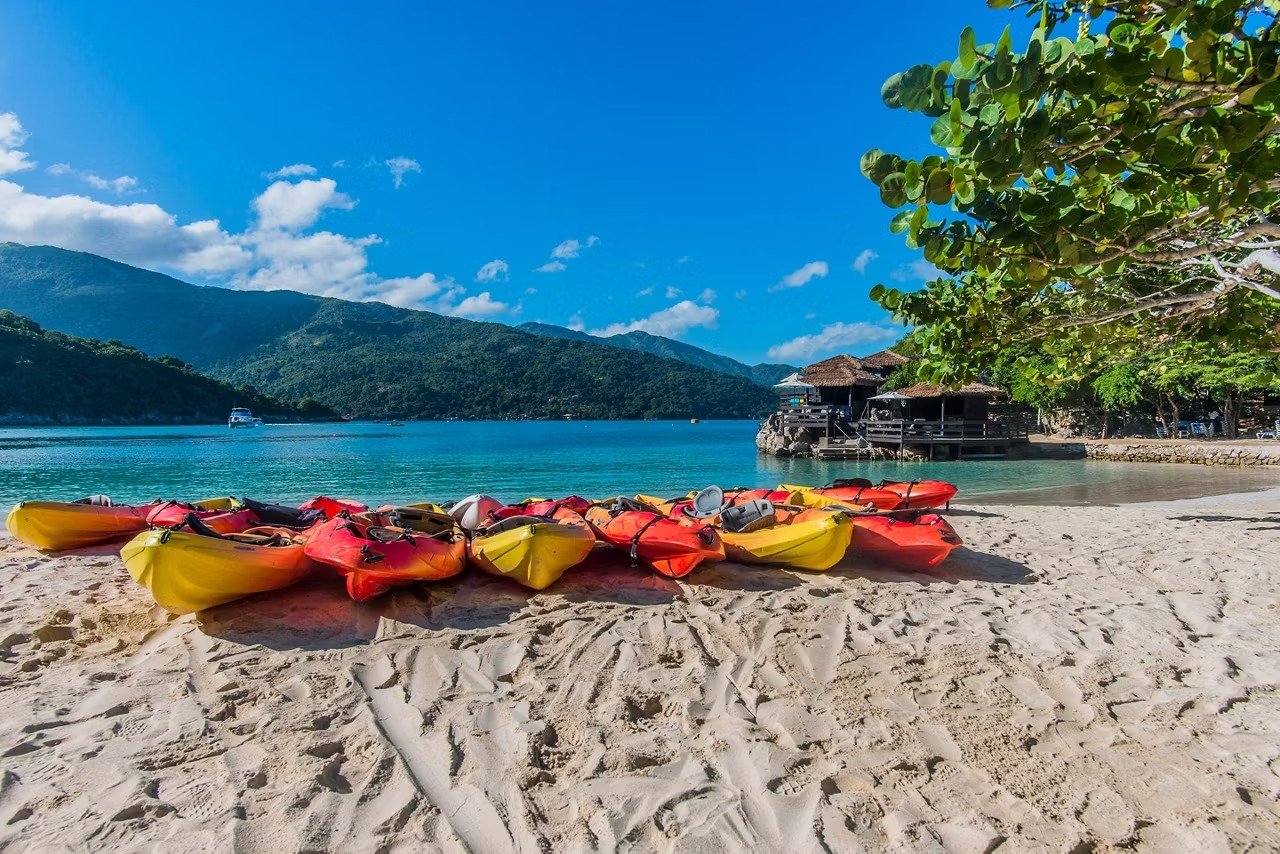What Are the Travel Trends for 2026?
This year is shaping up to be one of the most exciting in travel history! If you're planning your next getaway, you're in for a treat! The travel landscape has transformed dramatically, with travelers seeking deeper connections, more meaningful experiences, and smarter ways to explore our incredible world. From AI-powered planning tools that make booking a breeze to hidden alpine escapes that beat the heat, 2026 is rewriting the rulebook on how we adventure!
Let's jump into what's actually happening in travel right now, the trends you need to know, the destinations everyone's buzzing about, and insider tips that'll help you plan the trip of a lifetime without breaking the bank!
Did you know Travel Agents get really good travel perks? Yep, you heard that right, Travel Agents get discounts for themselves! Join us here at MainStreet Travel for only $99 with our Starter Membership and start enjoy those perks today! There’s no minimum booking requirements so you can book as much or as little as you want!
AI Is Your New Travel Best Friend
Here's something wild: over half of all travelers used AI to plan or research their trips last year, and that number's jumped to 72% of Gen Z travelers who feel totally comfortable letting technology do the heavy lifting. AI isn't just suggesting hotels anymore—it's building entire itineraries based on your vibe, budget, and personal interests.
Think of it like having a super-smart travel buddy who knows every hidden gem, can compare thousands of options in seconds, and never gets tired of your questions! These tools are getting crazy good at understanding what you actually want. They're reading between the lines when you say "romantic but not too touristy" or "adventure vibes but nothing too extreme."
The best part? You're not stuck with cookie-cutter suggestions. Modern AI learns your preferences as you go, adapting recommendations in real-time. Lost that perfect restaurant you bookmarked? Just ask. Need to completely rework day three because of weather? Done in minutes, not hours!
Short But Sweet: The Rise of Micro-Trips
Forget those exhausting two-week marathons where you need a vacation to recover from your vacation! Gen Z is leading a revolution toward quick, intense getaways lasting just one or two days. These bite-sized trips focus on high-energy culture, iconic food scenes, and viral destinations that pack maximum punch into minimum time.
Why the shift? People want flexibility without months of advance planning. They're asking "where can I go right now?" instead of "where should I go next summer?" It's about meaningful escapes that fit real life—not elaborate schemes that require coordinating six people's schedules and your entire year's PTO.
The beauty of micro-trips is you can take more of them throughout the year. Weekend in Nashville for live music? Three days exploring Portland's food scene? Quick beach reset before a big work deadline? Absolutely! Travelers are discovering that multiple short trips often deliver more joy and variety than one long vacation!
Nature Calling: Touching Grass Is Actually Trending
There's literally a social movement called "touch grass" with over 85,000 TikTok posts encouraging people to get outside and disconnect from screens. And travelers are listening! Searches for stays near national parks jumped 35% for 2026, with places like The Great Smoky Mountains seeing over 135% growth in solo traveler interest.
This isn't just about hiking though. It's about finding peace, restoring your nervous system, and experiencing the kind of quiet that's nearly impossible to find in our hyperconnected daily lives. Farm stays have exploded in popularity—mentions in guest reviews surged 300%, with 84% of travelers expressing interest in staying on or near working farms.
People are choosing rural retreats, small ski towns, and nature-based experiences like foraging and birdwatching over traditional tourist-packed cities. There's something deeply healing about waking up to mountain air, collecting fresh eggs, or watching sunset from a porch that overlooks actual wilderness instead of another hotel.
The Mountains Are Having a Moment
While everyone else bakes on crowded Mediterranean beaches, smart travelers are heading to the mountains—and not just in winter! This "coolcation" trend (yes, that's what we're calling it now) has 71% of UK travelers considering alpine and mountain escapes for summer or autumn.
Why? Overtourism and record temperatures are making traditional hotspots miserable. But head to places like the Dolomites, Swiss Alps, or Austria's Ötztal and you're greeted with comfortable temps, dramatic scenery, and way fewer crowds. Hotel bookings for rooms with mountain views are up 103% compared to last year.
These destinations offer the perfect trifecta: stunning natural beauty, outdoor activities, and the kind of refreshing weather that actually lets you enjoy your vacation. No more hiding indoors until sunset or melting into sidewalks. Plus, many alpine towns have incredible spa culture, charming villages, and authentic local experiences you won't find at beach resorts.
Eastern Europe Steals the Spotlight
Seven of the top 10 trending destinations for 2026 are in Eastern Europe. We're talking Prague (up 180% in searches), Sofia at 136%, and Krakow climbing 106%. These cities offer everything Western Europe has—stunning architecture, incredible history, amazing food—but at a fraction of the cost and with way fewer crowds!
Budapest remains a backpacker dream with thermal baths, $8 dorms, and $1.60 beers. Romania's Brasov delivers Gothic charm and mountain scenery starting at $14 for hostels. Albania's Riviera provides Mediterranean beaches without the Mediterranean prices. And Sarajevo? You're getting Ottoman-era streets, incredible burek for $3, and accommodation starting around $31 per night.
The appeal goes beyond affordability. These destinations feel authentic in ways that over-touristed Western European cities sometimes don't anymore. You're more likely to stumble upon a family-run restaurant than a chain, discover neighborhoods where locals actually live, and experience culture that hasn't been Disney-fied for tourists!
Set-Jetting: When Your Favorite Show Becomes Your Itinerary
Remember when White Lotus aired and everyone suddenly wanted to go to Hawaii, then Sicily, then Thailand? That's set-jetting, and it's projected to become an $8 billion industry in the US alone. A whopping 81% of Gen Z and Millennial travelers now plan vacations based on locations featured in films and TV!
For 2026, expect crowds heading to Yorkshire for the new Downton Abbey movie, Tuscany because of George Clooney's latest film, and New Zealand again thanks to Avatar: Fire & Ash. Samoa's about to blow up when the live-action Moana drops, while Croatia's Dalmatian Coast is already trending ahead of the People We Meet on Vacation adaptation.
This trend reveals something interesting about modern travel: we're inspired by stories and want to walk in the footsteps of characters we love. It's less about ticking off landmarks and more about feeling connected to narratives that moved us. Travel companies are capitalizing big time, creating packages tied to specific shows and movies!
Multigenerational Travel: Making Memories That Matter
Here's a trend that'll warm your heart: families are traveling together across multiple generations more than ever. More than half of families now include adult children in trips, with many involving three or even four generations.
Why the surge? Partly it's practical—splitting costs makes better destinations accessible when everyone chips in. But mostly it's about priorities shifting. Families are geographically spread out these days, and shared travel creates concentrated time together that's become precious. Plus, experiences are increasingly replacing inheritance—families are choosing to spend on memories rather than leaving bigger financial legacies.
The key is finding destinations that work for different ages and energy levels. All-inclusive resorts are making comebacks with sophisticated updates, offering adults-only zones alongside family areas. Villa rentals and larger accommodations provide space where grandparents can rest while kids roam and parents don't feel like constant coordinators. It's togetherness without forced programming—connection happening organically around shared meals and optional activities.
Solo Travel Evolves Beyond Youth Hostels
Solo travel isn't just for twenty-somethings anymore! It's experiencing a renaissance with a 39% year-over-year increase in solo campers, and searches for solo-friendly destinations tripling in many locations. The demographic now includes professionals, older adults, wellness seekers, and people of all ages who've discovered that traveling alone is incredibly empowering.
Top solo destinations for 2026 include Copenhagen (safe, bikeable, easy), Reykjavik (perfect for adventure excursions), Bangkok (chaotic but surprisingly solo-friendly), and Singapore (ultra-modern and secure). Vietnam continues killing it for solo travelers with its safety, affordability, and incredible food scene.
What's changed is the infrastructure supporting solo travelers. Hotels are designing rooms specifically for singles without the dreaded single supplement. Tour companies offer small-group adventures perfect for meeting people without committing to travel companions for weeks. And digital nomad communities provide instant social networks in cities worldwide.
Sports Tourism Reaches Championship Levels
If you're a sports fan, 2026 is YOUR year! The FIFA World Cup hits North America with 78 of 104 matches in the US, followed by the Winter Olympics in Italy. Sports tourism now accounts for 10% of global travel spending, projected to hit $1.3 trillion by 2032.
But here's what's interesting: fans aren't just showing up for game day anymore. They want complete experiences—stadium tours, sports museums, fan zones, and the ability to explore host cities before and after events. Two-thirds of people say a city's wider sports tourism offering matters when booking trips.
London tops rankings as the world's best sports-tripping city, offering density and diversity with elite football, rugby, cricket, basketball, and tennis often on the same weekend. Dubai's rising as a sports powerhouse with safety, infrastructure, and tons of sports bars for watching when you can't get tickets. Cities hosting major events are seeing hotel bookings spike months in advance.
Luxury Train Travel Makes a Glamorous Comeback
Forget flying—luxury train travel is experiencing a major revival! Bookings surged 135% over three years, with a 41% increase just last year. New routes are launching across Europe, Asia, and even the US, offering everything from two-night jaunts to epic 60-day around-the-world journeys starting at $130,000.
The appeal? It's nostalgic, romantic, and allows you to actually see the landscapes between destinations instead of just clouds. Modern luxury trains feature Dior spas, observation cars with 360-degree views, gourmet dining, and suites with heated bathroom floors and clawfoot tubs.
Golden Eagle Luxury Trains offers routes like the Grand Silk Road from Beijing to Tashkent, while Rovos Rail's Copper Trail includes charter flights to national parks with elephant encounters. The Venice Simplon-Orient-Express is adding new routes, including Paris to the Amalfi Coast launching May 2026. It's slow travel elevated to an art form—the journey becomes the destination!
Wellness Travel Goes Deeper Than Spa Days
Wellness tourism is projected to surpass $1.4 trillion by 2027, but it's evolved way beyond standard spa weekends. Travelers want hormone-informed retreats, nervous system healing, sleep optimization suites, and personalized skincare analysis.
Full moon ceremonies and sound bath healing—once considered "woo-woo"—are now mainstream spa offerings. Pilates retreats are becoming "the new yoga retreat," offering structured, results-driven transformations. And emotional wellbeing is extending to family travel, with hotels designing experiences supporting adults, children, and teenagers together.
Climate-adaptive wellness is emerging too. As temperatures rise, travelers seek "coolcations" trading sun-soaked beaches for alpine retreats with innovative hot-and-cold therapies, sauna rituals, and ice baths. It's less about pampering and more about genuine restoration—returning home actually changed, not just temporarily relaxed.
Bleisure: When Business Trips Become Mini-Vacations
"Bleisure" travel—blending business with leisure—is exploding from $315 billion in 2022 to a projected $731 billion by 2032. Sixty percent of business travelers now extend trips for personal time, and 25% of corporate travel decision-makers plan offering stipends for personal vacations.
The logic makes perfect sense. You're already flying somewhere for work, so why not add a weekend to explore? Companies save on flights since they're covering business portions anyway. Employees return recharged instead of burned out. And destinations benefit from extended stays that boost local economies.
Remote work culture accelerates this trend. With flexible arrangements normalized, employees feel empowered to work from anywhere. Airlines and hotels are adapting loyalty programs specifically for bleisure travelers, while cities promote attractions perfect for post-conference exploration. It's win-win-win—for workers, employers, and destinations.
Sustainable and Regenerative Tourism Finally Go Mainstream
Sustainability isn't optional anymore—it's becoming the standard. Corporate travel is targeting emissions reduction (some achieving 48% cuts when setting formal goals), while destinations launch regenerative tourism initiatives that actually heal ecosystems rather than just minimizing damage.
Examples include Sardinia promoting responsible hiking and cycling tourism, Queenstown implementing carbon-neutral operations, and Indonesia developing "Tourism 5.0" to spread visitors beyond Bali. Travelers actively seek accommodations with transparent sustainability practices, participate in tree-planting excursions, and choose slow travel reducing their footprints.
It's not about guilt or sacrifice—it's about traveling smarter. Choosing trains over short-haul flights can cut emissions by 97%. Supporting local restaurants and guides keeps money in communities. Visiting secondary cities and off-season relieves pressure on overtourism hotspots. Sustainable aviation fuel offers 85% emission reductions. The tools exist; travelers just need to use them.
The Quiet Revolution: Hushpitality and Digital Detox
Welcome to the era of "Hushpitality"—prioritizing calm, quiet, and refuge from constant noise. Travelers actively seek quietcations, digital detox cabins, and serene escapes from the relentless pace of modern life. It's wellness travel's quieter cousin, emphasizing restoration through simplicity and silence.
Destinations benefiting from this include small mountain villages, remote coastal retreats, and countryside farmstays where WiFi is intentionally limited. Hotels design "quiet zones," offer earplugs as standard amenities, and create spaces prioritizing tranquility over stimulation.
This trend reflects burnout recovery. After years of hustle culture, always-on connectivity, and doom-scrolling, people crave the opposite. They want to hear wind through trees, not traffic. They want conversations without notification buzzes. They want sleep in actual darkness and silence. It sounds simple, but in our modern world, quiet has become luxury.
Practical Travel Planning for 2026
Book Early and Save Big
Airlines typically release schedules 10-11 months ahead, and booking early secures better routes, pricing, and perks. For 2026's major events (World Cup, Olympics), properties near venues are already selling out.
Early bookers also lock in current rates before inevitable price increases. Many companies offer deposit-based booking with monthly payments aligning to your budget. The earlier you commit, the more flexibility you have in choosing accommodations and activities before availability dwindles.
Travel Insurance Is Non-Negotiable
Travel insurance is shifting from "nice-to-have" to essential, especially with unpredictable global conditions. New trends include border denial coverage, Cancel For Any Reason (CFAR) policies offering 75% refunds regardless of circumstances, and extended medical coverage for digital nomads living abroad.
Many countries now require minimum medical coverage ($50,000-$100,000) for entry. Even if not mandated, comprehensive protection makes sense for big-ticket trips, exotic destinations, or adventure activities. AI-powered quote assistants now help travelers compare policies and understand coverage instantly.
Off-Season and Secondary Destinations Deliver Value
Traveling during shoulder seasons (spring/fall) means better weather than peak summer, fewer crowds, and significant savings on flights and accommodation. Similarly, secondary cities offer authentic experiences without overtourism headaches or inflated prices.
Instead of Venice, try Ljubljana. Skip Santorini for Milos. Bypass Kyoto for Kanazawa. These "destination dupes" provide similar vibes and attractions at fraction of costs while supporting communities eager for tourism but not overwhelmed by it.
Budget-Friendly Strategies That Work
Bundle and save: Booking flights and hotels together often yields discounts and perks
Public transportation: Subways and buses slash rental car and parking costs
Free attractions: Museums offer free admission days; walking tours, parks, and markets cost nothing
Eat where locals eat: Skip tourist traps for authentic, affordable neighborhood spots
Use credit card rewards: Points and miles stretch budgets significantly
Consider cheaper countries: Vietnam, Cambodia, Nepal, Bolivia, and Morocco offer incredible value
Emerging Destinations Worth Your Attention
Asia
Okinawa, Japan: Searches soaring for this island paradise blending culture and beaches
Ko Samui, Thailand: Crystal beaches, night markets, cooking classes
Kanazawa, Japan: Less crowded alternative to Kyoto with stunning gardens
Bangalore, India: Emerging wine destination with tech-forward vibe
Americas
Big Sky, Montana: Trending for outdoor adventures and luxury ranch stays
Atacama Desert, Chile: Other-worldly landscapes with incredible stargazing
Bacalar, Mexico: Lagoon of Seven Colors offers Caribbean beauty without prices
Cartagena, Colombia: Four Seasons opening brings luxury to this historic coastal gem
Europe
Albanian Riviera: Mediterranean beaches at Balkan prices
Teruel, Spain: Hidden gem with truffle hunting and ghost towns
Oulu, Finland: European Capital of Culture 2026 with floating saunas
Hungary countryside: Camping bookings up 117%, fastest-growing outdoor destination
Africa & Middle East
Botswana's Okavango Delta: Safari luxury without East African crowds
Oman: Traditional culture and peaceful exploration away from Dubai chaos
Tunisia: Emerging solo female travel destination with history and beaches
Frequently Asked Questions About 2026 Travel Trends
How much should I budget for travel in 2026?
Budget varies wildly by destination! Eastern Europe and Southeast Asia offer incredible experiences for $25-50 per day. Mid-range European travel runs $100-200 daily. Luxury trips, especially to Switzerland or Scandinavia, can exceed $500 per person daily. Airfare represents the biggest variable—international flights range $400-1,500 depending on route and booking timing.
When's the best time to book 2026 trips?
Book international flights 3-6 months ahead for best pricing, though major events require earlier commitment. Summer Europe trips should be booked by March. Flexible travelers benefit from last-minute deals, but popular destinations and dates require advance planning. Monitor fare alerts through Google Flights or Skyscanner for price drop notifications.
Is travel insurance really necessary for 2026?
Absolutely! More destinations require proof of insurance for entry. Beyond mandates, comprehensive coverage protects significant financial investments in trips, especially with unpredictable weather, political situations, and personal circumstances. Annual policies make sense for frequent travelers (4+ trips yearly), while single-trip plans suit occasional vacations. Cancel For Any Reason coverage provides maximum flexibility.
What's the cheapest way to travel internationally in 2026?
Target budget-friendly destinations like Vietnam, Cambodia, Bolivia, Romania, or Morocco where daily costs stay under $50. Book flights during off-peak seasons. Use points and miles strategically. Stay in hostels or farm stays instead of hotels. Eat street food and shop local markets. Use public transportation. Many backpackers travel for months on $1,000-1,500 monthly budgets in cheap countries.
How can I avoid overtourism in 2026?
Visit during shoulder seasons (April-May, September-October) rather than peak summer. Choose secondary cities over famous capitals. Explore emerging destinations like Albania, Oman, or Eastern Europe before crowds discover them. Book accommodations and attractions with timed entry during off-peak hours. Follow "destination dupe" recommendations swapping Venice for Ljubljana or Santorini for Milos.
What's the best way to use AI for trip planning?
Start with ChatGPT or specialized AI trip planners for initial itinerary suggestions based on your interests, budget, and dates. Use AI to organize booking confirmations into clean itineraries. Ask for real-time adjustments when plans change. Let AI identify timing issues (attractions closing early, unrealistic distances) you might miss. However, verify recommendations and don't solely rely on AI—combine technology with human research and travel agent expertise.
How do I plan a successful multigenerational family trip?
Choose accommodations with separate zones allowing togetherness and privacy—villas, large rentals, or resorts with distinct areas work best. Select destinations offering activities for various ages and mobility levels. Build flexibility into schedules so everyone needn't do everything together. Share costs clearly upfront. Book early for better availability of connecting rooms or larger units. Consider all-inclusive resorts simplifying logistics and budgets.
What should solo travelers consider for 2026?
Safety and walkability matter most when traveling alone. Choose destinations with strong public transportation, English accessibility (or translation apps), and established solo traveler communities. Stay centrally to minimize late-night travel. Join small-group tours providing social interaction without committed travel partners. Share itineraries with friends/family back home. Trust your instincts—if something feels off, it probably is.
Travel Intentionally in 2026
This year's biggest travel trend? Intentionality. Travelers are choosing quality over quantity, meaning over checkboxes, connection over consumption. Whether that means extended farm stays reconnecting with nature, multigenerational trips building family memories, quick micro-escapes providing relief from daily grind, or ancestry journeys tracing family roots—the common thread is purpose.
Technology makes travel easier than ever with AI planning assistants, instant translation, and global connectivity. But the smartest travelers use these tools to enhance experiences, not replace them. They book early for peace of mind. They invest in insurance protecting adventures. They choose sustainable options benefiting destinations and communities.
Most importantly, they remember why they travel in the first place: to experience wonder, build connections, create memories, and return home changed for the better. Whether you're touching grass in a national park, sipping wine in an Eastern European village, watching northern lights from an Arctic cabin, or simply taking a long weekend somewhere completely new—make 2026 the year you travel with intention, curiosity, and joy!
Now stop reading and start planning. Your next adventure awaits!

